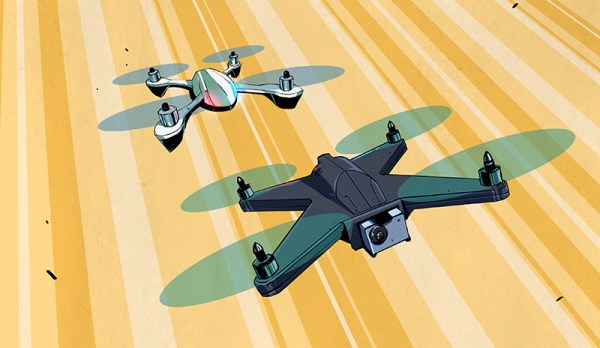Every year, Congress passes bills directing the funding for various departments and agencies. Sometimes, this goes swimmingly: congress recently told NASA to attempt a landing on Europa, Jupiter’s ice-covered moon. Sometimes, it doesn’t go as well. The draft of the FAA Reauthorization act of 2016 (PDF) includes provisions for drones and model airplanes amid fears of privacy-encroaching quadcopters.
As would be expected, the 2016 FAA Reauthorization act includes a number of provisions for unmanned aerial systems, a class of aircraft that ranges from a Phantom quadcopter to a Predator drone. The draft of the act includes provisions for manufacturers to prevent tampering of modification of their product, and provide the FAA with a statement of compliance, and prohibit these devices from being sold unless these conditions are met.
For a very long time, the Congress and the FAA have had special rules for model aircraft. Since 2012, the special rules for model aircraft have been simple enough: model aircraft are flown for hobby or recreational use, must operate in accordance with community-set safety guidelines, weigh less than 55 pounds, give way to manned aircraft, and not be flown within five miles of an airport. The 2016 FAA Reauthorization bill adds several updates. No model aircraft may be flown higher than 400 feet above ground level, and the operator of a model aircraft must pass a knowledge and safety test administered by the FAA. Under this draft of the FAA Reauthorization bill, you will have to pass a test to fly a quadcopter or model plane.
While this is only a draft of the 2016 FAA Reauthorization bill, there is a considerable risk flying model planes could quickly go the way of amateur radio with a Morse requirement for the license. This, of course, is due to Congress’ fears of the impact drones and model airplanes could have on safety, despite recent studies that show a 2kg drone is likely to cause injury to a human passenger once every 187 million years of operation. In other words, politicians don’t understand statistics.












